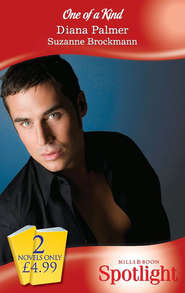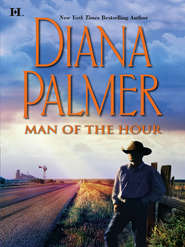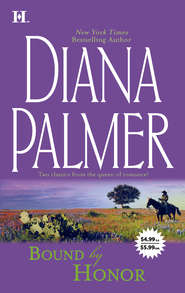По всем вопросам обращайтесь на: info@litportal.ru
(©) 2003-2024.
✖
Fire and Ice
Автор
Год написания книги
2018
Настройки чтения
Размер шрифта
Высота строк
Поля
“It’s Andy,” she whispered to Margie, who nodded and left the room, knowing her sister would appreciate some privacy,
She wandered out into the long hall. On the way to her bedroom, her eyes fell on the wood umbrella stand she and Larry had bought soon after their wedding. They’d been browsing in an antique store—Margie’s passion for the past irritated him, and he’d only gone under protest—when her eyes had fallen on the handcarved wooden relic. She’d bought it against his wishes, because it had been expensive. She’d argued that she had money of her own, a little that her grandmother McPherson had left her, and he’d stormed out of the shop in a huff, leaving her to handle the transaction.
They’d had a violent argument about it that night, and he’d forced her in bed—not for the first time—leaving her hurt and bruised and frightened. The next morning he’d dressed to go on his fatal trip while she studied him with tormented eyes. She’d watched him leave the room with the most incredible kind of pain in her heart, wondering what had happened to their marriage, longing to be free of him.
She shuddered at the memory, glaring down at the umbrella stand. Why had she left it here, in a house that now held no memento of him, not even a picture? Perhaps it was some subconscious thing, she told herself, to keep alive the guilt that had never gone away. She’d wished herself free, and he’d died. Somehow, she felt responsible for the plane crash—despite the fact that she had had nothing to do with it.
She stared down at the antique. Perhaps she’d give it to Mrs. James next door. She smiled as she went into her blue and white bedroom. Mrs. James was really a doll, despite her strict puritanical streak and her fervent disapproval of her notorious neighbor. Margie actually encouraged that disapproval, for reasons she’d never worked out. She wasn’t really the uninhibited creature her readers believed her to be. The woman inside the flamboyant shell was actually very vulnerable, and achingly lonely. But her marriage had taught her one thing—that appearances were not to be trusted. She never wanted to take the chance of being trapped again. She never wanted another domineering man in her life, and even as the thought registered, she saw a mental picture of Cannon Van Dyne. She shivered involuntarily. He was like Larry, she thought. All arrogant command, the kind of man who’d want a clinging, obedient woman with no independence and no spirit. He’d smother her….
The bedroom door burst open as Margie was drawing her mint green nightgown over her head, and she turned, smiling at Jan’s excited face. Her younger sister so rarely glowed like that. Jan was such a shy, gentle creature.
“Oh, Margie, we’ve got another chance!” she said, eyeing her older sister warily.
“We?” Margie asked with raised eyebrows. She smoothed the gown over her hips and rested her hands on them. “Okay, shrimp, what have you got me into this time?”
Jan sat down on the bed, running a nervous hand through her short hair. “Margie, you love me, don’t you?”
Margie melted at the nervous young voice. “Oh, darling, you know I do,” she said, sitting down to hug her sister affectionately. “You’re all I’ve got in the world. Don’t you know what you mean to me?”
Jan bit her lip, returning the hug. “I hope you know that I feel the same,” she murmured. “Without you to hold on to, I don’t know how I would have survived. Mother dead, Dad drinking himself to death while he made a public spectacle of all of us, Granny McPherson fighting to keep us….” She looked up. “Granny was good to us, but she wasn’t a warm person. The only affection I ever remember came from you.”
Margie sighed. “Same here.”
“I’ll never forget the way you took me in after Granny died—despite Larry’s objections.” Jan had never liked Larry; he’d always made her feel like an outsider. She’d had no place to go except to Margie. There were no other relatives who could have taken her. Boarding school was out because of the expense, so Margie had pleaded and begged until Larry gave in and let Jan live with them. But he’d never liked the arrangement, and he’d been cruelly vocal about it.
Jan had never pried into Margie’s marriage. And her sister had put on a very convincing face for the world, but Jan saw through it. It was impossible to live in the same house with two people and not sense the undercurrents.
“I never should have married him,” Margie admitted, remembering. “He seemed so different than he really was. And we married far too soon. Three weeks isn’t nearly enough time to decide something so important.”
Jan touched Margie’s shoulder gently. “We were almost destitute, and at the end of Granny’s legacy,” Jan said gently. “I think that surely influenced you. Larry seemed to be able to support you…us.” She lowered her eyes. “I put a terrible strain on your marriage, didn’t I?”
“No!” Margie said vehemently. “No, the strain was there from the beginning. And what did he expect me to do, throw you out in the street? You’re my sister. I love you.”
“I love you, too,” Jan said, leaning on Margie’s shoulder.
“Anyway, he seemed to be such a nice man. I didn’t know that he liked to drink and party every night. He never seemed to overindulge before we were married.”
“And you would rather have been walking in the woods or fighting the government over conservation measures.” Jan laughed. “But Margie, all men aren’t like Larry, you know.”
Margie’s expression was wistful. “How can you be sure about a man until you live with him?” she asked. “I don’t trust my own judgment anymore.”
Jan’s eyes were faintly troubled as she studied her sister. Few people were privileged to see Margie like this, with the mask lowered, the uncertainty showing. It hurt her terribly to think that Margie might go through life like this because of her failed marriage. Like most people in love, Jan wanted everyone to be as happy as she was. But she didn’t know how to help her sister.
“We’ve gotten off the track,” Margie murmured, the smile back on her face like magic. “What were you so excited about? A chance to make Mount Rushmore change his mind?”
Jan blinked. “Mount Rushmore?”
“Cannon Van Dyne.”
“Uh, yes, actually.” Her eyes were wary after the long conversation, and she hesitated. “Andy’s made a dinner reservation for four at Louis Dane’s tomorrow night.”
Margie straightened and walked over to the curtains, her back as stiff as old Mrs. McPherson’s. “Four?”
Jan nodded. “You, me, Andy…”
“And…?”
Jan swallowed. “Cannon Van Dyne.”
Two
Margie’s green eyes took on a peculiar glitter as she said, “No! Absolutely not!”
“You both got off to a bad start,” Jan reminded her. “And you helped—you know you did—with that horrible dress. I wasn’t deserting you; I just thought if the two of you were left alone together…” She groaned. “Oh, I made a mess of it myself by not telling you why I wanted you to go to the restaurant. But Margie, you don’t know how important Cannon’s approval is. I can’t ask Andy to give up his family and his inheritance all at once just for my sake. I can’t!” She gave Margie a pleading glance. “And I can’t fight Cannon alone; I’m not strong enough. I can’t even pretend that I’ve got a chance against him.”
“And you think I have?” Margie asked.
“Yes, because you aren’t afraid of him,” Jan said. “I’ve seen you charm men. When you turn on that smile and act like yourself, you draw them like flies.”
Margie looked shocked. “If you think I’d deliberately lead that bulldozer on…”
“I wouldn’t ask you to,” Jan said quickly. “Never would I do that to you. But you have a knack for getting people to listen to you, for drawing them out. You could convince Cannon that I’m not too young and stupid and unaccomplished to become a Van Dyne,” she continued, unabashed.
“I’m not sure I want you to become one,” Margie said with a flash of resentment. “You know very well how I feel about cliques and snobbery. And for that matter, don’t you think it’s time you told Andy about Dad’s drinking? You can’t hide your past forever.”
Jan nodded her head, looking guilty for a moment. “I know. I was hoping to tell him down in Panama City. It’s just that our backgrounds are so different. And Cannon doesn’t think I can cope with their lifestyle—or make Andy happy.”
“You most certainly could,” Margie argued. “You have poise and terrific manners. And you learned how to organize dinner parties for your boss, with his wife’s help….”
“See?” Jan grinned. “You’re already sure I could make the grade. All you have to do is sell me to Cannon.”
“Slavery was abolished by Lincoln,” Margie pointed out.
“Margie!”
“The tycoon wouldn’t listen,” came the sullen reply. “He’s a card-carrying chauvinist with delusions of upper-crust grandeur. So arrogant…imagine, a man who makes ladies’ underthings being arrogant!” Her face contorted and she burst into giggles. “Jan, suppose you get Andy to filch me a lacy set of underwear for my statue of Venus…imagine what Mrs. James would say!”
Jan couldn’t repress a laugh. Margie, in this mood, was hilarious. “Okay, I’ll do it. Now will you please come to dinner with us tomorrow night? Maybe you can get me that invitation to Panama City.”
Margie sighed. “Has it ever occurred to you that I might be more of a detriment to you than an asset? I ought to be horsewhipped for deliberately giving him the wrong impression tonight. I don’t even know why I did it.” She groaned, swinging back her long, tangled hair. “It’s this awful deadline I’m on, with only a month to go, and the book isn’t going well at all….” Her eyes met Jan’s. “Darling, I’m sorry. I’ll try to make amends tomorrow night. I’ll bite my tongue in half if it will help, truly I will. And one way or another, we’ll get you that invitation to Panama City!”
“I knew you wouldn’t let me down,” Jan said affectionately. She hugged her sister hard. “It will all work out. You’ll see.”
* * *
But as Margie dressed for dinner the following evening, she wasn’t convinced of that. She stared at her reflection in the mirror with grave misgivings.
Her dress was simple—a mass of black chiffon with a slightly sensuous v-neck surrounded by ruffles. She had put her rebellious black hair in a high knot on top of her head, with wisps falling around her face, and schooled herself to look sedate. She was sparing with her makeup and chose a perfume with a light, flowery, almost innocent scent. She looked so different from the practiced seductress of the previous night that she imagined Cannon Van Dyne might not even recognize her.











